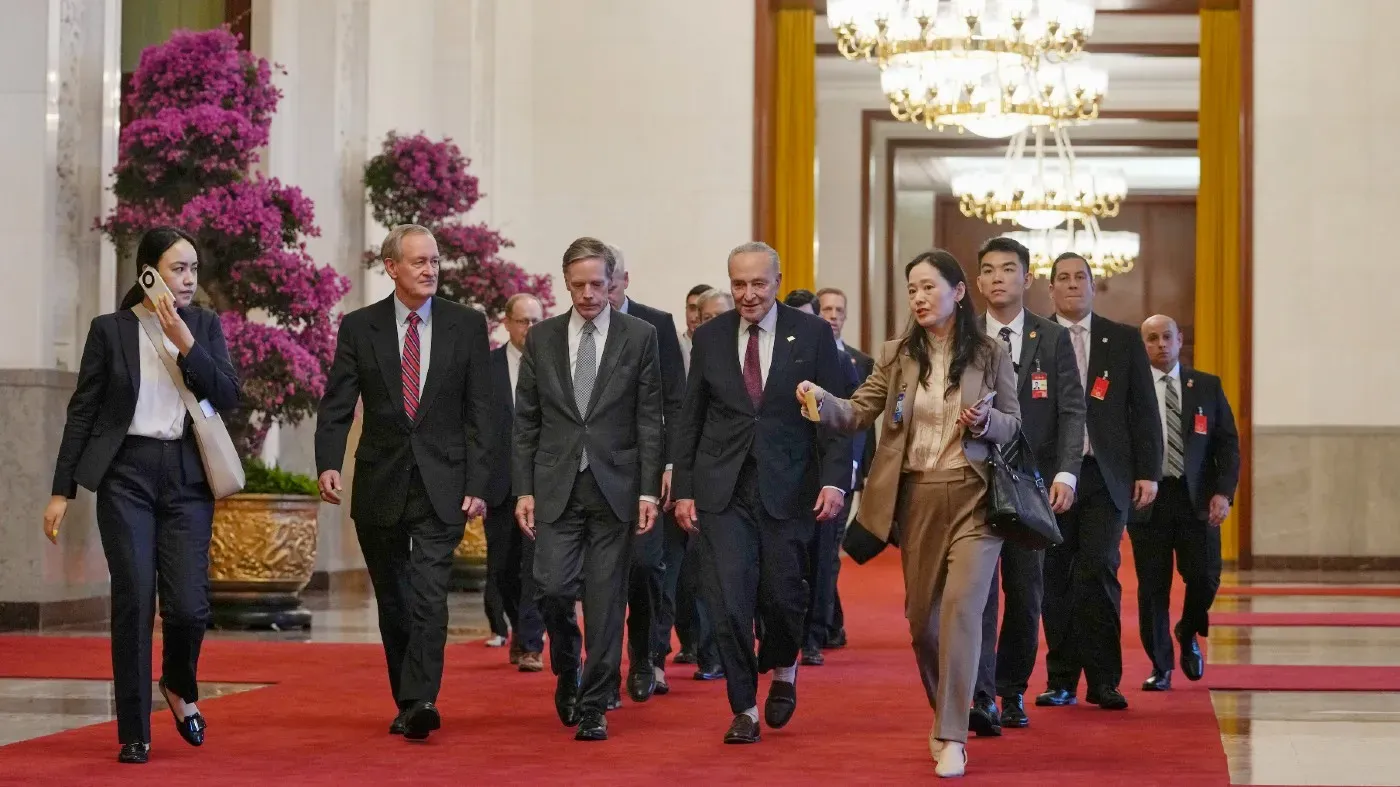Escalating Tensions: Schumer Urges Chinese Support for Israel Amid Hamas Attacks
In a recent diplomatic engagement in Beijing, U.S. Senate Majority Leader Chuck Schumer called on Chinese President Xi Jinping to rally behind Israel following a series of deadly attacks by Hamas. Schumer expressed his dismay over Beijing's lack of overt sympathy towards Israel after the weekend'

In a recent diplomatic engagement in Beijing, U.S. Senate Majority Leader Chuck Schumer called on Chinese President Xi Jinping to rally behind Israel following a series of deadly attacks by Hamas. Schumer expressed his dismay over Beijing's lack of overt sympathy towards Israel after the weekend's tragic events.
The severity of the situation was underscored by the scale of Hamas's onslaught on Saturday, with the Islamist group's attack resulting in the death of 700 Israelis and the abduction of several more. This marks the most severe assault on Israeli territory since the Yom Kippur war five decades ago, which involved Egypt and Syria. Israel's retaliation targeted Gaza, leading to significant Palestinian casualties.
Contrastingly, state-run Chinese media downplayed the Israel issue, pivoting to emphasize the importance of collaboration, mutual respect, and potential diplomatic engagements with the U.S., including a prospective summit with President Joe Biden.
China's foreign ministry, in its official statement, advocated for restraint from "relevant parties", emphasizing the protection of civilians and endorsing the two-state solution as a means to lasting peace.
Schumer's diplomatic mission to Asia is notably bipartisan, with visits scheduled for South Korea and Japan. The initiative aims to foster U.S. economic and national security alignments in the region.
In his discussions with President Xi, Schumer stressed the urgent need for Chinese solidarity with Israel. "The recent atrocities in Israel are deeply unsettling. I implore you, and the people of China, to align with the Israeli populace and denounce these heinous attacks," Schumer stated.
China's Foreign Ministry spokesperson, Mao Ning, responding to Schumer's comments, conveyed China's deep concerns over the intensifying conflict and denounced actions causing civilian casualties.
The overarching purpose of Schumer's visit, beyond the immediate crisis in Israel, was to negotiate economic parity and ensure fair treatment for U.S. enterprises operating in China. Both Schumer and Xi seemed keen to avoid escalating hostilities, with Xi underscoring that the shared interests between China and the U.S. transcend their differences.
The frequency of dialogues between U.S. and Chinese officials has seen an uptick lately, hinting at a thawing of relations which have been frosty due to disagreements over Taiwan, the COVID-19 origin debates, and allegations of espionage.
With the Asia-Pacific Economic Cooperation (APEC) summit on the horizon in San Francisco this November, all eyes are on Xi, following his notable absence from the recent G20 summit in New Delhi.




